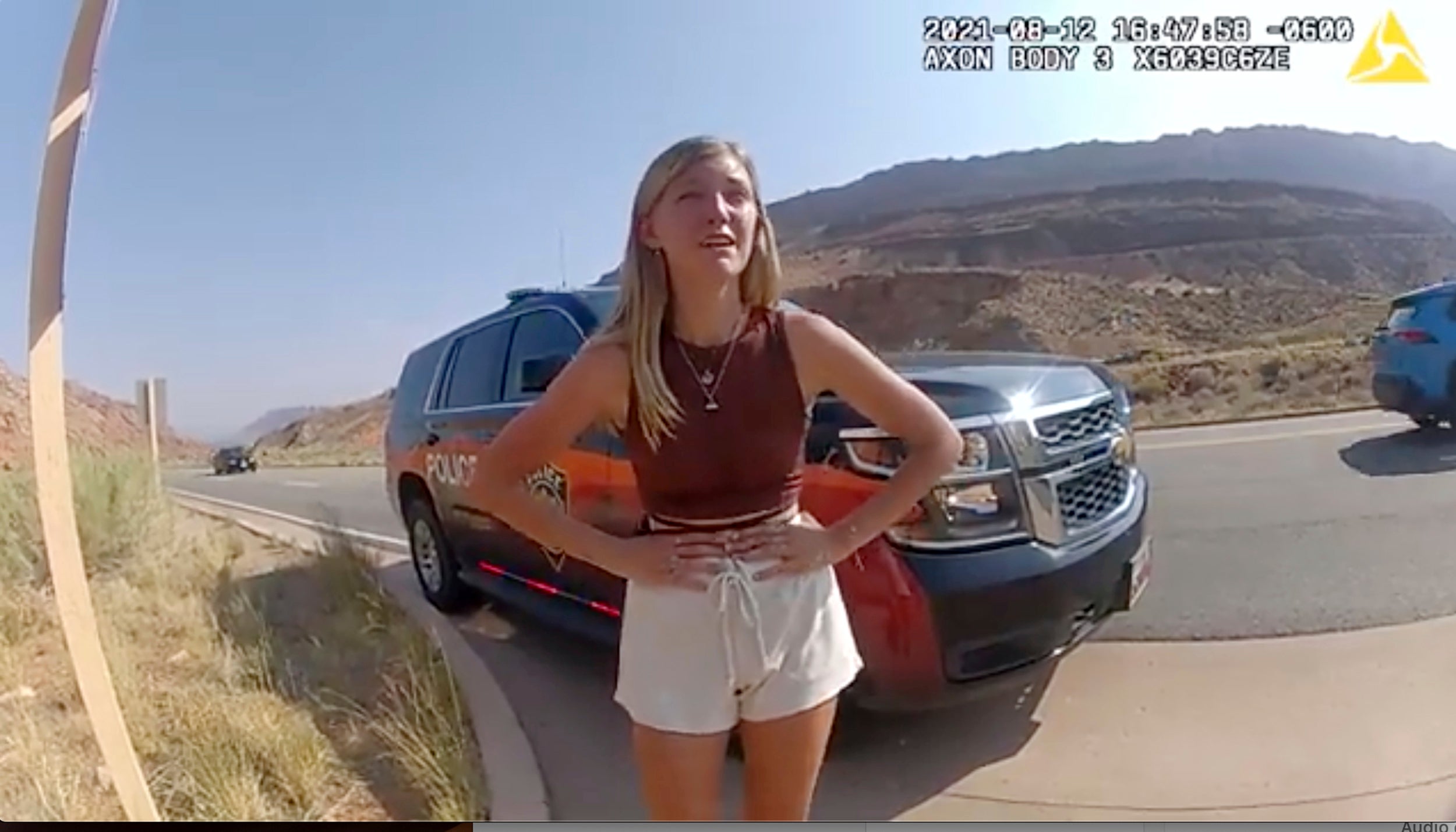Gabby Petito, Sarah Everard and the fatal decisions of police
This week’s news is a sad reminder that those who are there to protect the public often do no such thing, writes Holly Baxter


Few issues have dominated the US news as much over the past couple of weeks as the death of Gabby Petito, a social media star and self-described “van life girl” who had been traveling the country with her fiance Brian Laundrie. Petito disappeared in early September and her body was found a couple of weeks later in a national park in Wyoming. Not long after, Laundrie himself went missing – and despite claimed sightings in his family’s state, the surrounding areas and even Canada, he has not been found. The police are referring to him as a person of interest in Petito’s death.
Across the pond, of course, the details of Sarah Everard’s murder have been released this week. Everard was kidnapped from the streets of London and murdered by police officer Wayne Couzens — and the latest statements from Couzens’s sentencing describe how she was handcuffed by Couzens and forced into the car while he pretended to arrest her for violating rules relating to the pandemic.
These are two very different killings, but they have some similarities. The first and most obvious one is that both were young women; the second is that they had both had contact with the police in the days before their deaths. Though there is no evidence Petito was killed by a police officer in the manner of Everard, we do know that she and Laundrie were stopped by Moab police in Utah days before she went missing. The officers say they witnessed a violent argument between the two, which included a moment where Petito slapped Laundrie. Although other witnesses said they saw Laundrie hitting a frightened-seeming Petito – and although officers themselves reported that Petito appeared to be suffering a “mental health crisis” — it was determined that Petito was the attacker and Laundrie the victim of domestic violence. Police put Laundrie up in a hotel that night, leaving Petito to sleep alone in their van at the side of the road. Days later, she was dead.
The transatlantic cases of Petito and Everard underline how police forces can fail vulnerable women. Everard’s murderer was reportedly given the nickname “The Rapist” at work because of how he acted toward women, and multiple previous allegations against him of indecent exposure were not investigated. In the case of Petito, there appear to have been clear signs from the way she presented herself that all was not well in her relationship. If police had had a little more training on domestic disputes, or had considered more deeply what they were seeing, then Petito might not have died.
Sadly, these are not isolated incidents. Here in the US, most are still waiting for proper justice for Breonna Taylor, a medical worker who was shot dead by police officers in her own home in Louisville, Kentucky after they entered looking for her boyfriend. In Taylor’s case, she was fatally wounded by police after they busted down her door with a battering ram in the middle of the night. Her partner woke and fired one shot with a legally owned handgun; police responded by firing 32 shots into the dark, six of which hit Taylor. In a court case, it was detailed how officers had failed to try and help the dying Taylor and failed to call an ambulance as she lay wounded, instead simply saying, “She’s done”, and moving on. The callousness is breathtaking. One of the police officers present was fired and charged with wanton endangerment. The others were simply put on paid administrative leave.
Examples of police violence and misconduct toward women from just the past two years are numerous. Pictures of police officers violently arresting women who had gone to a Sarah Everard vigil after her murder will be scarred into the minds of many. The cases of Nicole Smallman and Bibaa Henry, two sisters who were murdered in a London park and then had photographs of their dead bodies shared inappropriately among police officers for entertainment, are even more horrific.
Reporting on these crimes is often difficult and upsetting. We can only hope that by shedding light on what is happening out in the wider world, we can leave violent misogynists no place to hide. Unfortunately, for people like Everard and Petito such progress will come far too late.
Yours,
Holly Baxter
US opinion editor



Join our commenting forum
Join thought-provoking conversations, follow other Independent readers and see their replies
Comments